See the important correction about the scope of DOJ’s motion for a stay, below. I’ve corrected this post in italics.
There will be some timeline clashes this week in the Trump stolen document case, each of which could spiral into a Constitutional crisis.
They arise, in part, from Judge Aileen Cannon’s order that Judge Raymond Dearie start his review of the documents with those marked classified.
The Special Master and the parties shall prioritize, as a matter of timing, the documents marked as classified, and the Special Master shall submit interim reports and recommendations as appropriate.
That’s because DOJ’s motion for a stay of Cannon’s order enjoining DOJ from doing any investigative work and sharing classified information — which was filed at 9:03PM on Friday — and any other yet-to-be-filed appeal of (parts of) her order will be proceeding even as Dearie scrambles to meet Cannon’s first deadline: to have a schedule in place by September 25.
Within ten (10) calendar days following the date of this Order, the Special Master shall consult with counsel for the parties and provide the Court with a scheduling plan setting forth the procedure and timeline—including the parties’ deadlines—for concluding the review and adjudicating any disputes.
On Saturday at 7:03PM — just over 22 hours after DOJ’s filing — the 11th Circuit ordered Trump to file his opposition to the motion for a stay by Tuesday at 12PM.
That deadline comes just two hours before a first meeting Judge Dearie scheduled in his courtroom in Brooklyn at 2PM on Tuesday.
Counsel are directed to appear before the undersigned in Courtroom 10A-S of the Brooklyn Federal Courthouse on Tuesday, September 20, 2022 at 2:00 PM for a preliminary conference in the above-captioned matter.
Counsel are invited to submit proposed agenda items for discussion by docketed letter to be filed before the close of business on Monday, September 19, 2022.
The 11th Circuit seems poised to move quickly. But unless they granted a stay as quickly as they ordered Trump to file, it would not stay the Special Master process.
Until they rule, though, Dearie will necessarily move towards taking some of the steps laid out in this thread from SecretsAndLaws:
- Finding a SCIF, probably in Brooklyn, to make the classified files available and transferring them by hand
- Finding a place to store the remaining seized 12,904 items and shipping them
- Clearing and providing work facilities for anyone who will have to access the classified documents
SecretsAndLaw didn’t consider one aspect of Cannon’s order. Read literally, with the exception of the 64 potentially privileged documents, she required DOJ to share the originals of the seized material with Dearie, not copies.
That’s likely something DOJ will ask to clarify on Tuesday. It’s solvable, sort of. DOJ can likely find a SCIF in the EDNY Courthouse or US Attorney’s Office. But that’s already a tremendous ask: that the government turn over the original copies of highly sensitive documents lawfully seized with a warrant to another branch of government.
It’s the clearance process that will lead to conflict.
As DOJ noted in their motion for a stay, Trump’s lawyers may be witnesses to the crimes under investigation.
Yet the district court here ordered disclosure of highly sensitive material to a special master and to Plaintiff’s counsel—potentially including witnesses to relevant events—in the midst of an investigation, where no charges have been brought. Because that review serves no possible value, there is no basis for disclosing such sensitive information.
We already know Evan Corcoran is — at least — a witness. But a passage in the warrant affidavit unsealed last week reveals that it called Christina Bobb “PERSON 2” (Mark Meadows is the best candidate to be “PERSON 1,” because we know he was directly involved with returning, or not, documents to NARA earlier this year). Given that it refers to Corcoran as “FPOTUS COUNSEL 1,” there’s the possibility there’s an “FPOTUS COUNSEL 2” discussed as well (the FBI agent did not use numbers for all descriptors; it called Jay Bratt “DOJ COUNSEL,” with no number). If that’s right, it may mean Jim Trusty — the only one of Trump’s lawyers known to have held clearance in recent years and unlike Chris Kise, already representing Trump on August 5 when the affidavit was written — also made himself a witness in this investigation.
Meanwhile in 2020, Kise — the guy Trump just uncharacteristically ponied up a $3 million retainer to — registered under FARA to represent Venezuela on sanctions issues before Treasury. That would normally make him ineligible for a clearance, much less one to access some of the most sensitive documents the US owns.
In other words, it’s possible that none of Trump’s attorneys, not even Jim Trusty, are eligible for clearance in this matter. And when I say ineligible, it’s not a close call. There’s no reason DOJ should be forced to share these materials with someone who was an agent of a foreign power. There’s even less reason to share them with someone who might be implicated in obstruction himself. In a normal situation, Trump would be told to go find a lawyer with clearance (with the added benefit, to him, that they might know a bit about national security law).
DOJ routinely refuses to make classified materials available in civil suits. And anytime someone tries to order them to do so, they jump through a great many hoops to avoid doing so. In the al-Haramain case suing for illegal surveillance under Stellar Wind, one that has many direct applications to this one, that was true even when the plaintiff had already seen the classified document, as Trump has. In al-Haramain, there was even a cleared lawyer, Jon Eisenberg, with no ties to al-Haramain’s suspect activities, whom the government resisted sharing the key document in question.
The government will do — historically, has done — a great deal to avoid the precedent of a District Court judge ruling that it needs to grant even cleared lawyers the Need to Know very classified information.
And I have no reason to believe it will be different here.
All of this wouldn’t necessarily pose a risk of Constitutional crisis if not for a tactic that Judge Cannon has already used to create a harm that she can insist on remedying.
As I’ve noted, twenty days ago, DOJ asked for permission to share the items they had determined to be potentially privileged with Trump’s lawyers so they could begin to resolve those issues. Twenty days!!
But Cannon prohibited DOJ from doing so, because she wanted to deal with this all “holistically.”
MR. HAWK: We would like to seek permission to provide copies — the proposal that we offered, Your Honor, provide copies to counsel of the 64 sets of the materials that are Bates stamped so they have the opportunity to start reviewing.
THE COURT: I’m sorry, say that again, please.
MR. HAWK: The privilege review team would have provided Bates stamped copies of the 64 sets of documents to Plaintiff’s counsel. We would like to seek permission from Your Honor to be able to provide those now, not at this exact moment but to move forward to providing those so counsel has the opportunity to review them and understand and have the time to review and do their own analysis of those documents to come to their own conclusions. And if the filter process without a special master were allowed to proceed, we would engage with counsel and have conversations, determine if we can reach agreements; to the extent we couldn’t reach agreements, we would bring those before the Court, whether Your Honor or Judge Reinhart. But simply now, I’m seeking permission just to provide those documents to Plaintiff’s counsel.
THE COURT: All right. I’m going to reserve ruling on that request. I prefer to consider it holistically in the assessment of whether a special master is indeed appropriate for those privileged reviews.
In her order denying DOJ’s request for a stay of her injunction (and several times before that), Cannon pointed to precisely these reserved potentially privileged items to find a harm to Trump that she needed to address.
To further expand the point, and as more fully explained in the September 5 Order, the Government seized a high volume of materials from Plaintiff’s residence on August 8, 2022 [ECF No. 64 p. 4]; some of those materials undisputedly constitute personal property and/or privileged materials [ECF No. 64 p. 13]; the record suggests ongoing factual and legal disputes as to precisely which materials constitute personal property and/or privileged materials [ECF No. 64 p. 14]; and there are documented instances giving rise to concerns about the Government’s ability to properly categorize and screen materials [ECF No. 64 p. 15]. Furthermore, although the Government emphasizes what it perceives to be Plaintiff’s insufficiently particularized showing on various document-specific assertions [ECF No. 69 p. 11; ECF No. 88 pp. 3–7], it remains the case that Plaintiff has not had a meaningful ability to concretize his position with respect to the seized materials given (1) the ex parte nature of the approved filter protocol, (2) the relatively generalized nature of the Government’s “Detailed Property Inventory” [ECF No. 39-1], and (3) Plaintiff’s unsuccessful efforts, pre-suit, to gather more information from the Government about the content of the seized materials [ECF No. 1 pp. 3, 8–9 (describing Plaintiff’s rejected requests to obtain a list of exactly what was taken and from where, to inspect the seized property, and to obtain information regarding potentially privileged documents)] [my emphasis]
I’ve written about how Cannon outright invented the claim that the medical and tax records were personal property. Both inventories thus far provided to Trump comply with the law (and, importantly, Custodian of Records Christina Bobb signed the first with no complaint about the accuracy or level of detail, arguably waiving any complaint).
But the single solitary reason why the filter protocol remained unavailable to Trump’s team on September 15, when Cannon wrote this order, is because she prohibited DOJ from sharing it with Trump over two weeks earlier.
Cannon, personally, created the harm, then used that harm to justify her intervention to address it.
And if you don’t think she plans to use the harm she created to justify continued intervention, consider that she still hasn’t ruled on DOJ’s request to unseal the privilege team status report, filed over ten days ago, which would be necessary for DOJ to address this ruse before the 11th Circuit (and rebut her false claims that the filter team missed anything). And she ordered Dearie — “shall” — to first address the classified documents even while acknowledging that her order was going straight to the 11th Circuit.
The Government advises in the Motion that it will seek relief from the United States Court of Appeals for the Eleventh Circuit “[i]f the Court does not grant a stay by Thursday, September 15” [ECF No. 69 p. 1]. Appreciative of the urgency of this matter, the Court hereby issues this Order on an expedited basis.
Ordering Dearie to start with the classified documents feigned reasonableness on Cannon’s part. But what it also did is ensure these separation of powers issues come to a head within days, not weeks, possibly before any 11th Circuit ruling.
A reasonable judge, someone genuinely interested in a third party reviewing this stuff as expeditiously as possible, would start with the items already identified as potentially privileged, because that’s the single set of documents that does not implicate any separation of powers issues (and also the single set of documents that is virtually guaranteed not to be included in DOJ’s appeal).
So in addition to the motion for a stay and, at some point, the actual appeal of other parts of Cannon’s order — with complaints about the order to review classified documents, review for executive privilege, and the order prohibiting criminal charges, all of which Cannon concedes are Executive Branch authorities even while she usurps authority to override the Executive — the way Cannon has set this up may elicit several other appeals of the implementation of her order, separate from the initial appeal of the order itself:
- To turn over possession of materials owned by the Executive Branch to Dearie
- To clear Trump’s lawyers and anyone else not otherwise eligible for clearance
- To grant those people Need to Know the contents of these documents
Ironically, Cannon’s Constitutional arrogance may hasten precisely the thing she claims to be preventing.
That’s because the single quickest way to avoid all these problems would be to charge Trump if and when the 11th Circuit (or SCOTUS) grants a stay of her injunction. As soon as that happens, all of this review would get moved under the District Court judge overseeing the criminal case (and Cannon’s intransigence makes it more likely DOJ would file such a case in DC).
DOJ really could not charge Trump on Espionage until that time (or until they seize other classified documents he has been hoarding, which they allude to in their motion for a stay). That’s because the the key proof that Trump refused to give the classified documents back is the failure to comply with the May 11 subpoena. Even any obstruction charge might require possession of (not just permission to use) the actual documents to prove the case. But DOJ may hasten such a decision at such time as they are permitted, to avoid the other Constitutional problems Cannon deliberately created.
As we have all that to look forward to this week, it’s worth watching or reading the remarkable speech Merrick Garland made with little fanfare at Ellis Island on Saturday, after he administered the Oath of Allegiance to new citizens. After contemplating that his grandmother would not have survived the Holocaust if not for the Rule of Law in the United States, Garland focused on its fragility.
My grandmother was one of five children born in what is now Belarus. Three made it to the United States, including my grandmother who came through the Port of Baltimore.
Two did not make it. Those two were killed in the Holocaust.
If not for America, there is little doubt that the same would have happened to my grandmother.
But this country took her in. And under the protection of our laws, she was able to live without fear of persecution.
I am also married to the daughter of an immigrant who came through the Port of New York in 1938.
Shortly after Hitler’s army entered Austria that year, my wife’s mother escaped to the United States. Under the protection of our laws, she too, was able to live without fear of persecution.
That protection is what distinguishes America from so many other countries. The protection of law – the Rule of Law – is the foundation of our system of government.
The Rule of Law means that the same laws apply to all of us, regardless of whether we are this country’s newest citizens or whether our [families] have been here for generations.
The Rule of Law means that the law treats each of us alike: there is not one rule for friends, another for foes; one rule for the powerful, another for the powerless; a rule for the rich, another for the poor; or different rules, depending upon one’s race or ethnicity or country of origin.
The Rule of Law means that we are all protected in the exercise of our civil rights; in our freedom to worship and think as we please; and in the peaceful expression of our opinions, our beliefs, and our ideas.
Of course, we still have work to do to make a more perfect union. Although the Rule of Law has always been our guiding light, we have not always been faithful to it.
The Rule of Law is not assured. It is fragile. It demands constant effort and vigilance.
The responsibility to ensure the Rule of Law is and has been the duty of every generation in our country’s history. It is now your duty as well. And it is one that is especially urgent today at a time of intense polarization in America.
Having started the speech focused on his forebears, the Attorney General closed by addressing the urgency of “doing what is difficult” for the generations of Americans who come after us.
On this historic day and in this historic place, let us make a promise that each of us will protect each other and our democracy.
That we will honor and defend our Constitution.
That we will recognize and respect the dignity of our fellow Americans.
That we will uphold the Rule of Law and seek to make real the promise of equal justice under law.
That we will do what is right, even if that means doing what is difficult.
And that we will do these things not only for ourselves, but for the generations of Americans who will come after us.
And then — even as the former President was riling up his cult in Ohio — the Attorney General was contemplating, on the verge of tears, that the rule of law is not assured.
Things could get really crazy in weeks ahead.
Update: I’ve been corrected about something in DOJ’s motion for a stay: They requested that the 11th Circuit stay both Cannon’s injunction and her order that they share classified information with Trump.
Although the government believes the district court fundamentally erred in appointing a special master and granting injunctive relief, the government seeks to stay only the portions of the order causing the most serious and immediate harm to the government and the public by (1) restricting the government’s review and use of records bearing classification markings and (2) requiring the government to disclose those records for a special-master review process. This Court should grant that modest but critically important relief for three reasons.



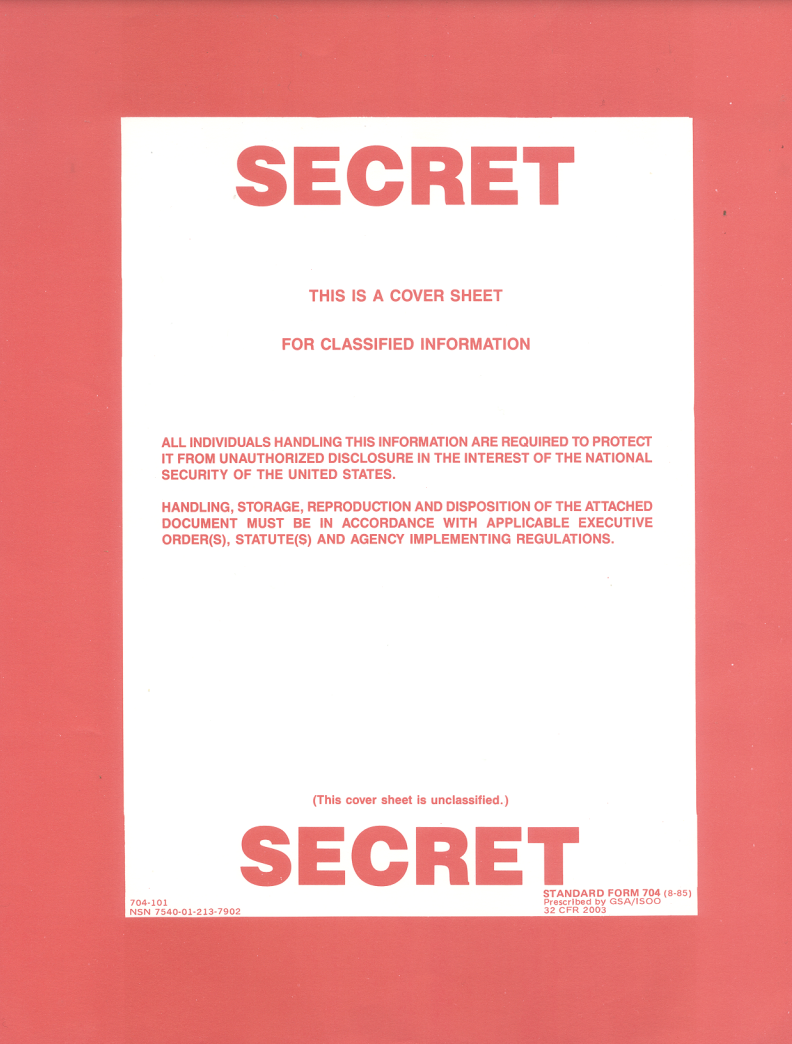
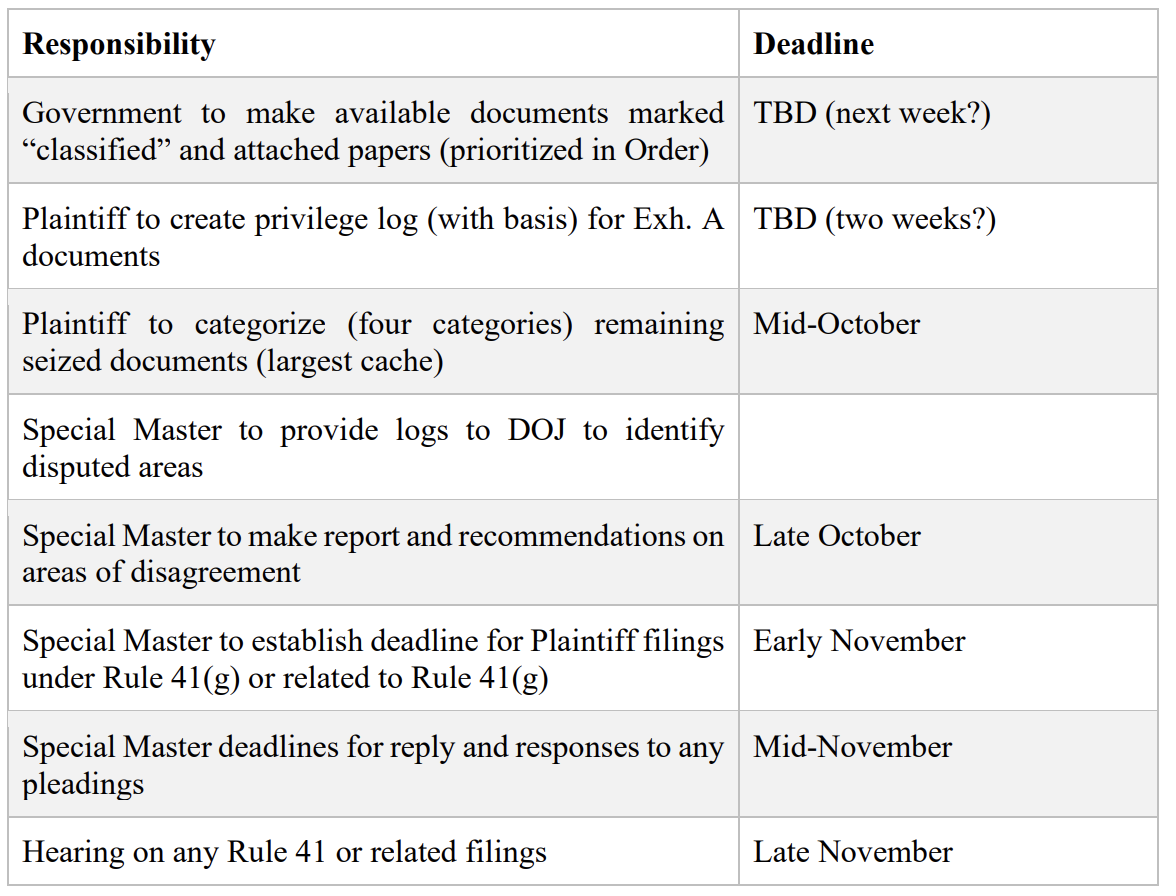

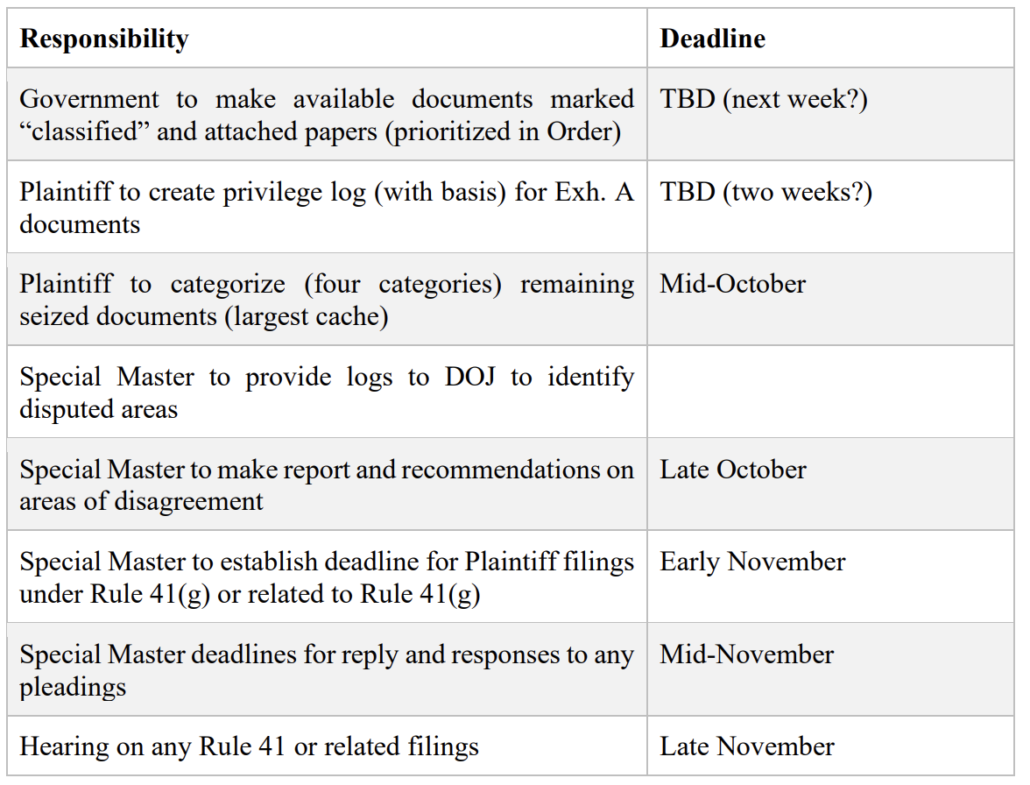
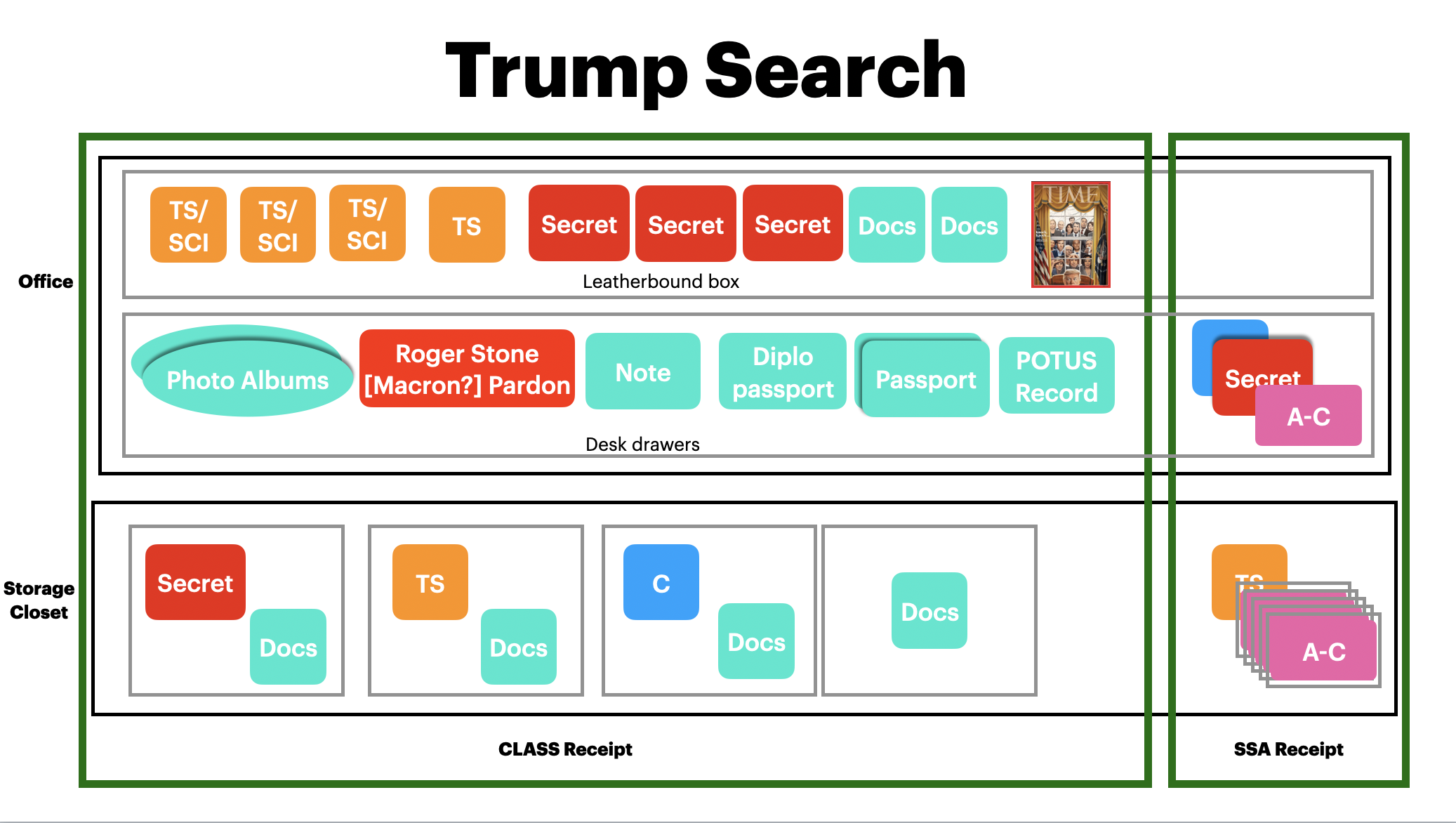
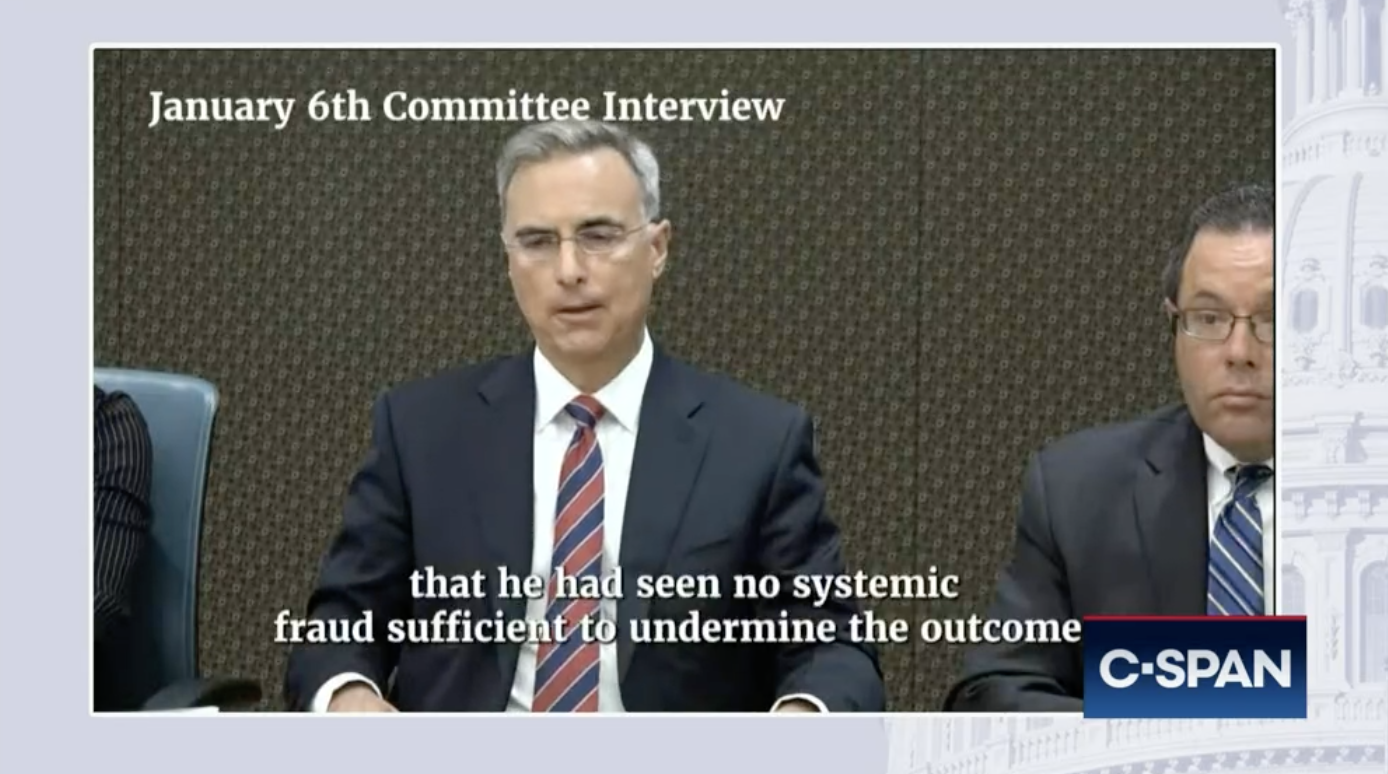
![[Photo: National Security Agency, Ft. Meade, MD via Wikimedia]](https://www.emptywheel.net/wp-content/uploads/2017/08/NationalSecurityAgency_HQ-FortMeadeMD_Wikimedia.jpg)